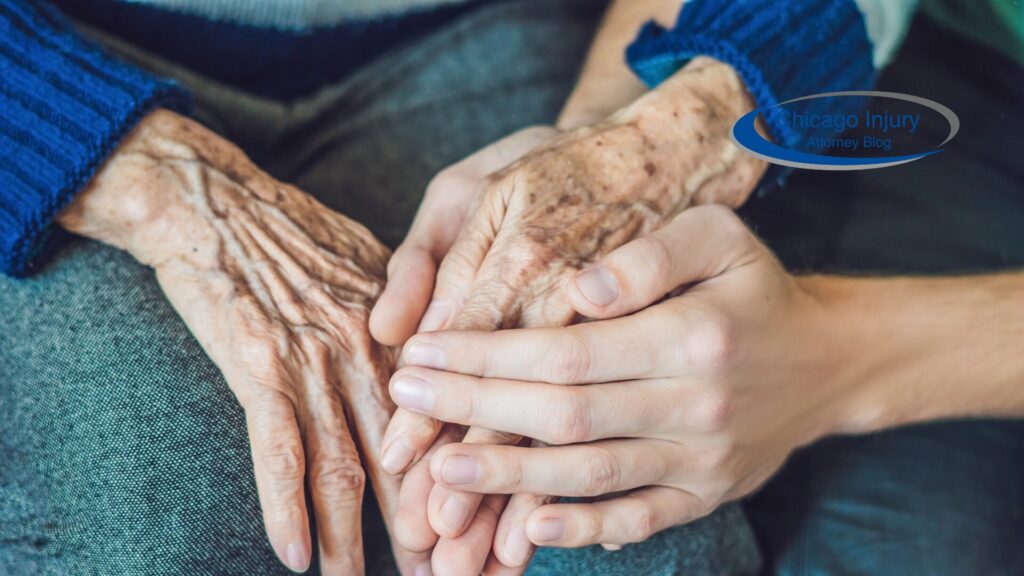Understanding Emotional and Psychological Abuse in Elder Care is crucial for ensuring the well-being of elderly individuals who may be vulnerable to mistreatment. It involves recognizing the various forms of abuse that can occur in caregiving settings and the impact they have on seniors’ mental health and overall quality of life.
Emotional abuse in elder care encompasses behaviors such as intimidation, insults, and threats that aim to undermine the senior’s self-esteem and confidence.
On the other hand, psychological abuse may involve manipulation, gaslighting, or isolating the elderly person from their support networks.
Elderly individuals are particularly at risk of abuse due to factors such as physical frailty, cognitive impairment, and dependency on caregivers for their basic needs.
These vulnerabilities can make it easier for abusers to exert power and control over the elderly person.
Psychological Elder Abuse
Psychological Elder Abuse involves the intentional infliction of emotional pain and distress on elderly individuals by caregivers, family members, or other individuals in a position of trust. It encompasses various manipulative tactics such as emotional manipulation and isolation, leading to detrimental effects on the mental well-being of seniors.
This form of abuse often goes unnoticed as it does not leave visible marks, making it harder to detect compared to physical abuse. Perpetrators of psychological elder abuse may use tactics like intimidation, humiliation, or controlling behavior to exert power over the vulnerable elderly. The consequences of such mistreatment can be severe, leading to anxiety, depression, self-doubt, and a decline in overall quality of life for the victims.
What is Psychological Elder Abuse?
Psychological Elder Abuse refers to the non-physical mistreatment of elderly individuals through verbal or nonverbal means, aimed at causing emotional harm or distress. This form of abuse often involves emotional manipulation and exploitation of seniors’ vulnerabilities for the abuser’s benefit.
Unlike physical abuse, psychological elder abuse is not always easily recognizable as it leaves no visible scars. Verbal abuse can include insults, threats, or constant criticism that undermines the senior’s self-esteem. Nonverbal forms, like ignoring the elder, isolating them from family and friends, or controlling their decisions, can be equally damaging.
The psychological impact of such mistreatment on seniors can manifest as anxiety, depression, social withdrawal, or even physical symptoms like insomnia or weight changes.
Why Does This Abuse Occur?
Psychological Elder Abuse often occurs due to various factors such as caregiver stress, family dynamics, and underlying mental health issues like depression and anxiety. Abusers may resort to emotional manipulation to control or exploit the elderly, leading to psychological harm.
One crucial aspect to consider when examining the root causes of psychological elder abuse is the immense pressure and challenges faced by caregivers. Daily responsibilities, financial strains, and lack of support systems can exacerbate stress levels, potentially leading to abusive behaviors as a coping mechanism.
Family dynamics play a significant role in this context. Conflicts, unresolved issues, and power struggles within families can create a toxic environment where the elderly person becomes a target for emotional abuse.
Effects of Emotional Abuse
Emotional Abuse in the elderly can have profound effects on their mental health, causing emotional pain, depression, anxiety, and deteriorating overall well-being. The psychological impact of mistreatment can significantly decrease the quality of life for seniors and hamper their ability to trust others.
When elderly individuals experience emotional abuse, it can result in a sense of worthlessness, isolation, and a diminished sense of self-worth. This mistreatment often leads to a cycle of negative thoughts and emotions, exacerbating feelings of helplessness and despair in the seniors. They may withdraw from social activities, display changes in behavior such as increased irritability or agitation, and struggle to cope with day-to-day challenges.
What Harm Does Psychological Elder Abuse Cause?
Psychological Elder Abuse inflicts significant harm on seniors, resulting in emotional pain, psychological distress, and deteriorating mental health. The effects of mistreatment can exacerbate existing conditions like depression and anxiety, leading to a decline in the overall quality of life for elderly individuals.
As seniors endure psychological abuse, they experience feelings of helplessness, worthlessness, and betrayal, causing trauma that deeply impacts their sense of self-worth. The emotional pain lingers long after the abuse stops, creating barriers to healing and recovery. Within family dynamics, the abuse can strain relationships, lead to isolation, and disrupt trust among family members. Caregivers, often overwhelmed by the challenges of dealing with elder abuse, face increased stress, guilt, and feelings of inadequacy, further highlighting the far-reaching repercussions of this insidious form of mistreatment.
Preventive Measures for Elderly Emotional Abuse
Implementing preventive measures is crucial in safeguarding elderly individuals from emotional abuse, exploitation, and mistreatment by caregivers or family members.
Addressing the Root Causes of Elder Abuse
Addressing the root causes of Elder Abuse requires a comprehensive approach that tackles issues such as caregiver stress, family conflicts, and underlying mental health conditions like depression and anxiety. By identifying and addressing these factors, it is possible to mitigate the risk of elder mistreatment.
One of the significant reasons for elder abuse can stem from the stress experienced by caregivers, who may feel overwhelmed by the demands of caring for elderly individuals. This stress can lead to burnout, impacting their ability to provide proper care.
Family dynamics play a crucial role in elder abuse. Conflicts within families, whether due to financial issues, disagreements about care decisions, or unresolved conflicts, can create an environment where mistreatment becomes more likely.
Mental health issues in both caregivers and elders can contribute to mistreatment. Conditions such as depression and anxiety can affect the caregiver’s emotional well-being, leading to negative behavior towards the elderly.
Signs and Symptoms of Psychological Elder Abuse
Recognizing the signs and symptoms of Psychological Elder Abuse is essential for early intervention and protection of seniors at risk. Common indicators include changes in behavior, unexplained injuries, sudden withdrawal, and manifestations of anxiety or depression in elderly individuals.
For instance, a senior who was once outgoing and social may suddenly become withdrawn and reluctant to engage in activities they previously enjoyed. They might display signs of fear or mistrust, particularly around certain individuals. Physical indicators such as unexplained bruises, cuts, or injuries should not be dismissed lightly and may indicate potential abuse. Emotional cues like constant sadness, mood swings, or drastic shifts in personality can also be red flags necessitating immediate attention and support.
Reporting and Seeking Help for Elder Abuse
Reporting instances of Elder Abuse and seeking help is crucial in protecting seniors from further harm and ensuring their safety and well-being. Family members, caregivers, and concerned individuals play a vital role in identifying mistreatment and taking appropriate actions to address the situation.
Regarding elder abuse, early intervention is key to preventing escalation of harm. If you suspect that an elderly person is being mistreated, it is important to take immediate action by reaching out to the relevant authorities or organizations specializing in elder abuse support.
Many communities have hotlines or helplines dedicated to assisting victims of elder abuse. These helplines can provide guidance on how to report the abuse and offer resources for the victim to access necessary support services.
Understanding the Impact on Elderly Individuals
Understanding the Impact of Elder Abuse on Elderly Individuals is crucial for recognizing the complex interplay between mistreatment and its repercussions on seniors’ emotional well-being. Emotional pain, depression, anxiety, and deteriorating mental health are common outcomes of abuse in the elderly population.
Elder abuse not only affects the immediate victim but also resonates throughout their social circles, impacting family members and caregivers. The burden of guilt, helplessness, and frustration can weigh heavily on those witnessing the abuse or trying to intervene. This ripple effect extends beyond the individual senior, creating a web of emotional strain within the broader support network.
Family members, who are often the primary caregivers, experience a mix of emotions ranging from anger and sadness to guilt and confusion when faced with elder abuse within their own dynamics. Understanding the nuances of these emotional complexities is critical in addressing the issue effectively and fostering a safe environment for vulnerable seniors.
Legal Rights and Protection Against Elder Abuse
Understanding Legal Rights and Protection Against Elder Abuse is essential for safeguarding the well-being and dignity of seniors facing mistreatment. Laws, regulations, and advocacy efforts aim to provide recourse for victims, hold abusers accountable, and prevent further instances of elder mistreatment.
Within the legal framework, various statutes and regulations such as the Elder Justice Act and Adult Protective Services laws establish guidelines for reporting abuse and ensuring swift intervention in cases of elder mistreatment. Seniors possess the right to live in a safe environment, make their own decisions, receive proper medical care, and be free from physical, emotional, and financial exploitation.
Caregivers play a crucial role in recognizing signs of abuse, providing support, and connecting seniors with resources for protection. Family members, too, must remain vigilant and advocate for their loved ones to prevent any form of elder maltreatment.
Support Services for Elderly Victims of Abuse
Accessing Support Services is crucial for Elderly Victims of Abuse to receive the necessary assistance, counseling, and resources to cope with the aftermath of mistreatment. Support networks, advocacy groups, and mental health services play a vital role in enabling seniors and addressing their needs.
These support services can provide a safe space for elderly individuals to share their experiences and receive guidance on legal options. Caregivers and family members often act as the bridge to connect seniors with these services, ensuring they are aware of their rights and the assistance available.
Mental health interventions, such as therapy and counseling, are crucial in helping seniors cope with the emotional impact of abuse. Advocacy groups play a pivotal role in raising awareness, pushing for policy changes, and offering individualized support to seniors in navigating complex systems to access the necessary help.
Empowering Caregivers and Healthcare Professionals
Empowering Caregivers and Healthcare Professionals is essential for enhancing the quality of care provided to elderly individuals and preventing instances of abuse. Training, education, and awareness programs equip caregivers with the skills and knowledge needed to identify, address, and prevent mistreatment in caregiving settings.
The implementation of regular workshops and seminars on elderly care and abuse prevention can provide continuous learning opportunities for caregivers, ensuring they stay updated with the latest practices. These educational initiatives not only enhance their knowledge base but also boost their confidence in managing challenging situations effectively. In tandem with education, fostering a culture of open communication within healthcare settings encourages early detection and intervention in potential abuse cases. Creating support networks and promoting self-care among caregivers further contributes to their mental well-being and overall quality of care delivery.
Education and Awareness Campaigns
Education and Awareness Campaigns play a vital role in combating Elder Abuse by promoting knowledge, understanding, and proactive interventions to prevent mistreatment. By raising awareness about the signs, effects, and consequences of elder abuse, these campaigns enable individuals to take action and protect vulnerable seniors.
These initiatives serve as a platform for educating both the general public and healthcare professionals about the various forms of elder abuse, including physical, emotional, financial, and neglect. Through training sessions, workshops, and informational materials, individuals can learn how to identify potential abuse situations and intervene effectively. These campaigns also contribute to destigmatizing the issue, encouraging victims to seek help and support. By promoting dialogue and collaboration among communities, policymakers, and organizations, education and awareness campaigns create a more inclusive and supportive environment for seniors.
Frequently Asked Questions
What is emotional and psychological abuse in elder care?
Emotional and psychological abuse in elder care refers to any intentional behavior that causes fear, distress, or mental anguish in an elderly person. This can include verbal, nonverbal, or even physical actions that undermine an elderly person’s sense of self-worth and well-being.
How common is emotional and psychological abuse in elder care?
Unfortunately, emotional and psychological abuse in elder care is more common than we may think. According to the National Center on Elder Abuse, approximately 1 in 10 seniors experience some form of abuse, with emotional and psychological abuse being the most prevalent type.
Who is most at risk for experiencing emotional and psychological abuse in elder care?
While anyone can be a victim of emotional and psychological abuse in elder care, those who are dependent on their caregivers and have limited social support are at a higher risk. This includes individuals with physical or cognitive impairments, as well as those living in isolation.
What are the signs and symptoms of emotional and psychological abuse in elder care?
Some common signs of emotional and psychological abuse in elder care may include changes in behavior, sudden withdrawal from activities or social interactions, unexplained injuries, and anxiety or depression. It is important to pay attention to any potential warning signs and report any concerns to authorities.
What should I do if I suspect emotional and psychological abuse in elder care?
If you suspect that an elderly person is experiencing emotional and psychological abuse, it is important to take action. You can report your concerns to adult protective services or law enforcement, and seek help from a trusted attorney to protect the victim’s rights and pursue justice.
How can I prevent emotional and psychological abuse in elder care?
To prevent emotional and psychological abuse in elder care, it is important to have open communication with your loved ones and caregivers. Stay involved in their care and regularly check in to ensure their well-being. If you notice any concerning behavior, address it immediately and seek help if needed.





